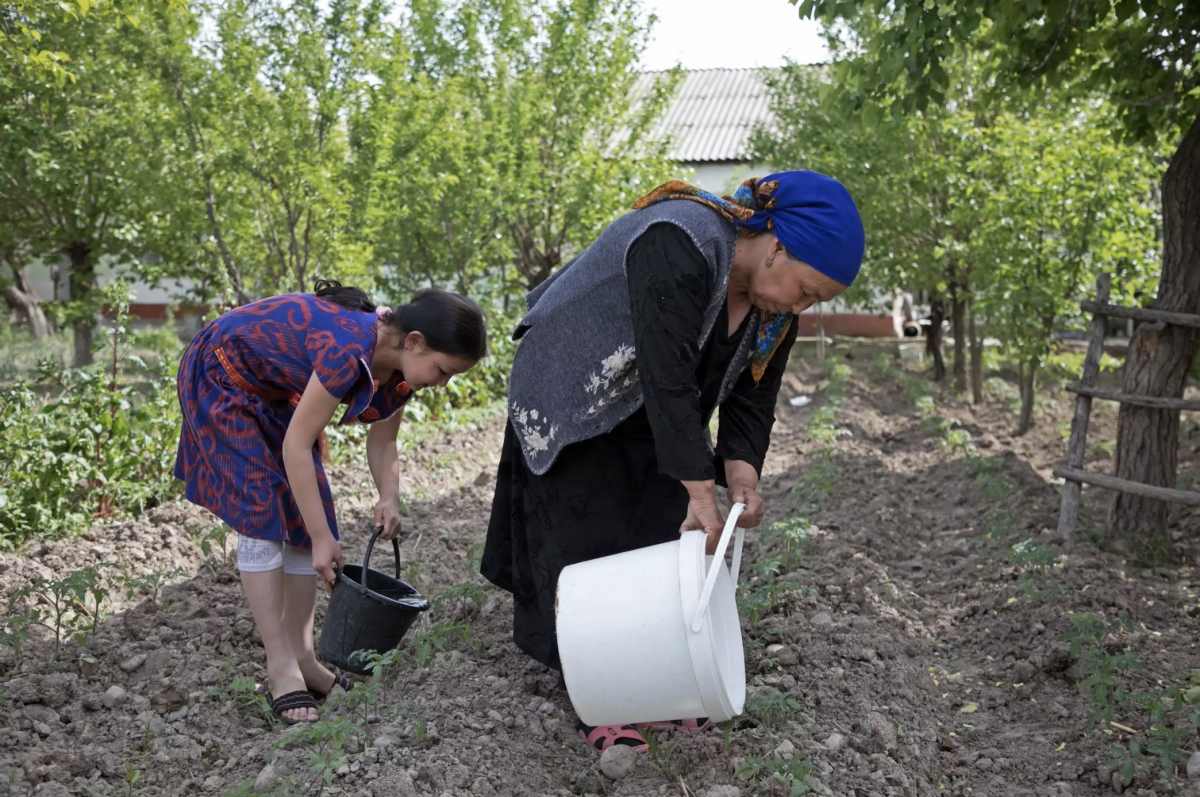Supporting Uzbekistan to advance their NAP process
Project Overview
Jun 2016
Government delegation from Uzbekistan attends the NAP-GSP Eastern European, Caucasus and Central Asia Regional Workshop, Chisinau, Moldova
Aug 2016
Government of Uzbekistan requests support on the formulation and implementation of a National Adaptation Plan process.
Oct 2016
NAP-GSP undertakes mission to Uzbekistan to take stock of adaptation policies and suggest next steps for the country’s NAP process
Dec 2016
A Stocktaking Report and a preliminary roadmap for advancing the NAP process in Uzbekistan is developed
Apr 2017
Uzbekistan submits its Intended Nationally Determined Contribution (INDC)
Sep 2018
Uzbekistan ratifies the Paris Agreement
Country background, Sustainable Development Goals and Paris Agreement
Uzbekistan is a large country in Central Asia with an arid, continental climate characterised by cold winters, hot summers and limited precipitation. Since 1938 the climate in Uzbekistan has risen by approximately 1.5°C. By 2050 mean temperatures are expected to increase from 1.9°C in the Gissar-Alay Mountains, to 2.4°C in the Southern region.
With a population of 32 million, Uzbekistan is the most populous country in the Central Asia region. The economy is based on the production of commodities in particular cotton, gold, uranium and natural gas, with agriculture comprising 19 percent of the GDP. Issues with water shortages and soil salinity and erosion, are serious issues in Uzbekistan, and around 20 percent of the country’s population are already affected by water salinization. This situation is worsened by the continuing disappearance of the Aral Sea, which has lost 80 percent of its volume and 64 percent of its depth in the past four decades. The combined effects mean climate change is expected to reduce crop yields by 20 – 50 percent through to 2050.
The closest strategy Uzbekistan has to a national climate change policy framework is the State Environmental Protection Programme (SEPP), the current version of which stretches from 2018 – 2022. In February 2017, Uzbekistan submitted its Third National Communication to the UNFCCC and in September 2018 ratified the Paris Agreement, bringing its Nationally Determined Contribution into effect. These documents prioritise Uzbekistan’s climate change adaptation and mitigation priorities. With a large hydrocarbons industry Uzbekistan has typically focused on climate change mitigation. But recently, with NAP-GSP support, it has developed a workplan (2017 – 2020) to deliver a NAP. The assumption is that it will take some time for climate change adaptation considerations to be fully integrated into the national development planning system, a critical process for achieving the Paris Agreement and the Sustainable Development Goals.
How has the NAP-GSP supported to date?
|
Undertook a stocktaking mission to identify next steps in the NAP process
|
The mission provided a snapshot of the available and intended planning capacities of the government agencies on climate change adaptation, in order to facilitate systematic mainstreaming of adaptation actions in the country’s development planning process. The findings formed the basis of the NAP Readiness proposal submitted to the Green Climate Fund (GCF), that requested funding to support the development of Uzbekistan's NAP. It was based on desk reviews, existing reports, individual interviews, and a questionnaire administered in October 2016.
|
|
Developed a roadmap for Uzbekistan’s NAP process
|
Informed by the stocktaking mission and the and rapid capacity assessment analysis of gaps in Uzbekistan’s adaptation planning, a Stocktaking Report was developed, including a roadmap for the NAP process that identifies 4 simultaneous workstreams needed to develop NAP between 2017 – 2020.
|
|
Helped facilitated access to additional climate finance
|
Uzbekistan was one of the first countries to request finance from the Green Climate Fund’s Readiness and Preparatory Support Proposal for the purpose of developing a NAP. The NAP-GSP helped create an enabling environment with the technical capacity to formulate this Readiness proposal.
|

